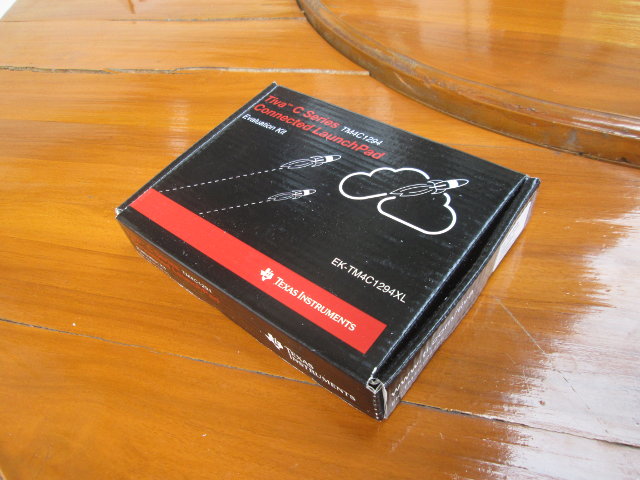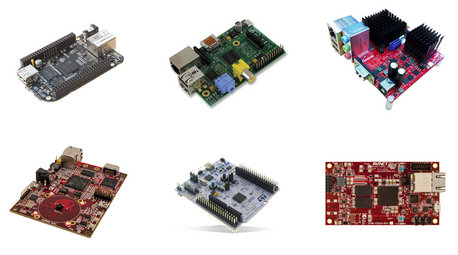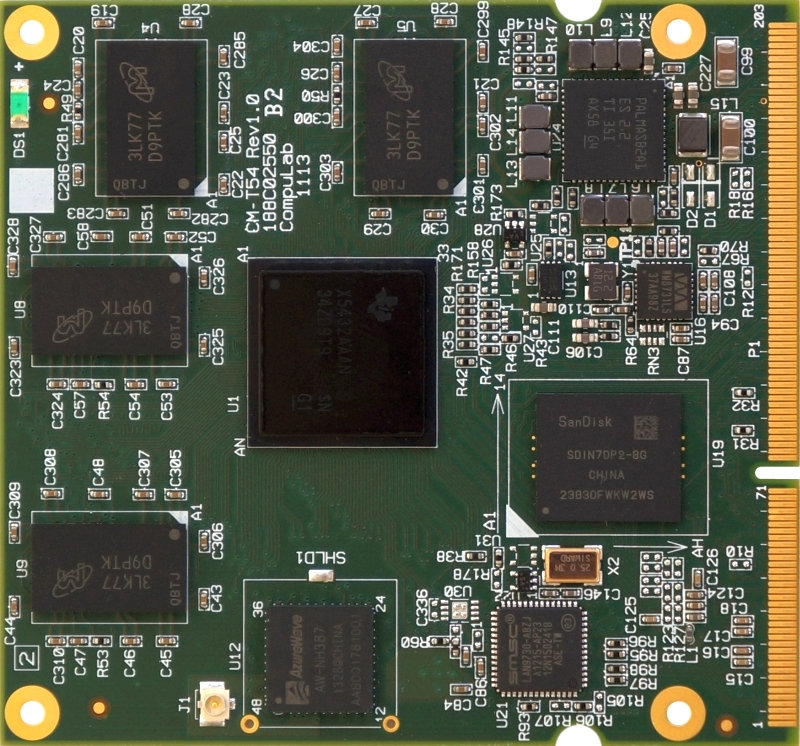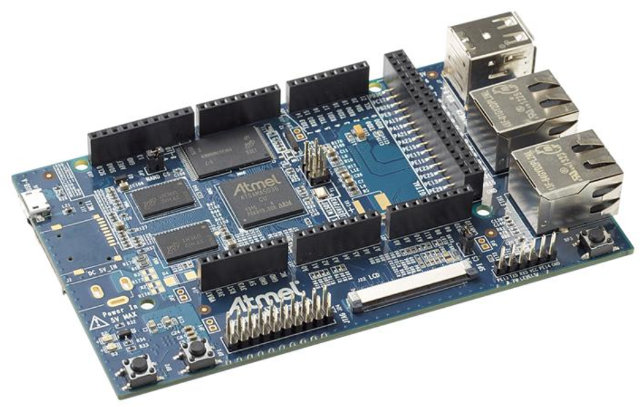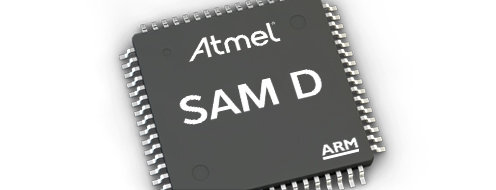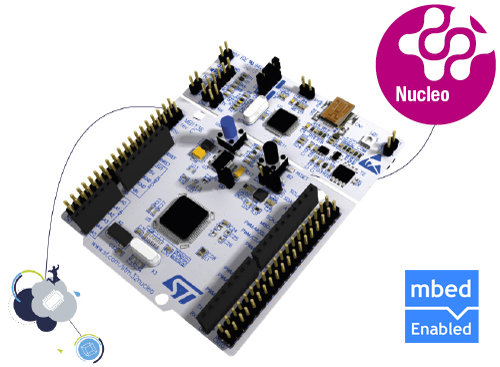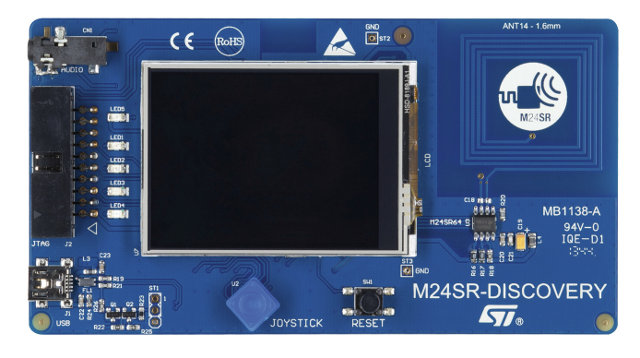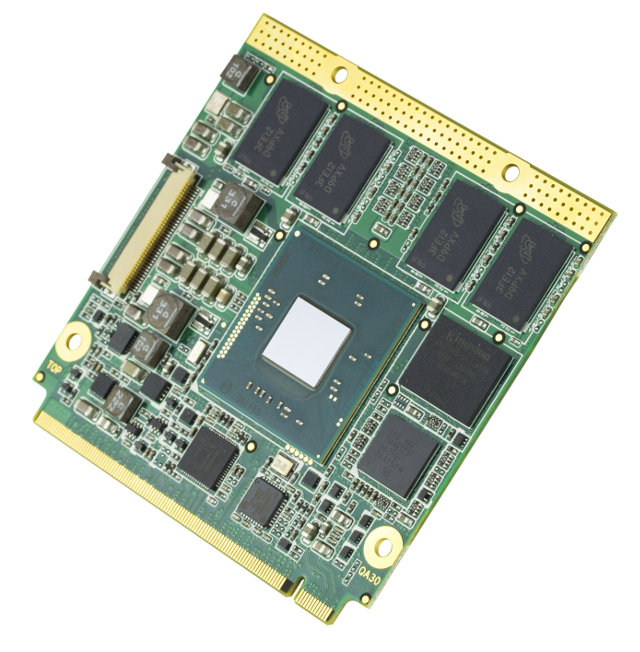Texas Instruments Tiva C Series TM4C1294 Connected LaunchPad is an evaluation kit for the Internet of things with a Cortex-M4 MCU (Tiva TM4C1294), an Ethernet port, and USB interfaces for power and debugging. At $19.99 including shipping via Fedex, it’s one of the cheapest ways to get devices online. I’ve purchased one via TI e-Store, and already received it. I’ll post some pictures of the kit, go through the Quick Start Guide, and provides links to resources to go further. EK-TM4C1294XL Connected LaunchPad Unboxing I’ve received the kit in the package below with feature a QR Code linking to http://www.ti.com/launchpad, as well basic specifications (refer to my previous post for specs), list of tools (Code composer studio, Tivaware, Keil, IAR…) and package content. In the box we’ve got the board itself, a retractable Ethernet cable, a USB to micro USB cable for power and debugging, and Connect LaunchPad Quick Start […]
Low Cost Development Boards Giveaway: Raspberry Pi, BeagleBone Black, MicroZed, Minnowboard, and more
OpenSystems Media is organizing a giveaway of some development boards targeting hobbyists. They’ll have a draw for the boards at EELive in San Jose, at their booth #2009 on April 1-2, but if you can’t attend you can also get a change to win online. Here’s the list of board given away 2 Raspberry Pi Boards sponsored by Element14 2 BeagleBone Black Boards sponsored by Texas Instruments 2 Minnowboards sponsored by Intel 2 Gizmo Development Boards sponsored by Symmetry Microzed Board from Xilinx sponsored by Avnet Finboard Board from Analog Devices sponsored by Avnet 2 STMicroelectronics Nucleo Boards sponsored by Mouser You could also double your chances to win by tweeting the text below: I just entered to win a #DIY board from @embedded_mag from #EELive. Click here for your chance to #win http://bit.ly/EElivecontest #embedded I could not find any terms and conditions, so I’m not sure if the giveaway is […]
Compulab CM-T54 Computer-on-Module Powered by Texas Instruments OMAP5432
CompuLab has introduced CM-T54 Computer-on-Module (CoM) powered by Texas Instruments OMAP5432 SoC with dual ARM Cortex-A15 CPU @ 1.5GHz coupled with Imagination Technologies PowerVR SGX544 GPU. The module also features up to up to 4GB DDR3, up-to 64GB eMMC, and provides Ethernet, SATA, USB 3.0 interfaces among others. Target applications include digital signage, industrial media players and IPTV. CM-T54 specifications: SoC – Texas Instruments OMAP5432 dual Cortex-A15 @ 1.5GHz with PowerVR SGX544 GPU, 2x Cortex M4 cores, IVA-HD video subsystem and TMS320DM64 32-bit DSP core System Memory – 512MB – 4GB DDR3-1066, single / dual-channel 32-bit data bus Storage – Up to 64GB eMMC flash, SATA II interface, 3.0 Gbps, Up to 3x MMC/SD/SDIO (3V levels) up to 32GB each. Display Parallel 24-bit display. Up to 1920×1080 @ 60Hz HDMI 1.4. Up to 1920×1080 @ 60Hz MIPI/DSI (4x lanes) @ 1Gbps Optional LVDS. Up to 1920×1080 @ 60Hz Support for […]
$79 Atmel ATSAMA5D3 Xplained Arduino Compatible, Open Source Hardware Board Powered by SAMA5D3 ARM Cortex-A5 Processor
A few days ago, at Embedded World 2014, Atmel has unveiled ATSAMA5D3 Xplained evaluation board based on SAMA5D36 ARM Cortex A5 micro-processor with 256 MB DDR2, 256 MB flash and numerous ports and expansion connectors, that targets industrial automation, networks, robotics, control panels and wearable applications. Atmel is one of the rare companies that provides support for the latest long term kernel (3.10) and mainline for their embedded solutions, and their latest board is fully open source hardware. Let’s have a look at the board specifications: MPU – Atmel SAMA5D36 Cortex-A5 Microprocessor @ 536 MHz System Memory – 2GBit DDR2 (Micron) Storage – 2GBit Flash (Micron), SD/MMCPlus 8-bit Card slot, 1x Micro SD Card 4-bit slot footprint (meaning not soldered) Connectivity – 1x Ethernet 10/100/1000M, 1x Ethernet 10/100M USB – 1x micro USB Device connector, 2x USB Host connectors Debugging – 1x 6-lead 3V3-level serial port, 10-pin J-TAG connector Expansion […]
Atmel Adds SAM D21, D10 and D11 MCUs to Its ARM Cortex M0+ SAM D Family
Atmel launched SAM D20 MCU family based on ARM Cortex M0+ last year, and at Embedded World 2014, the company has launched three new MCU families featuring ARM ultra low power core with SAM D10, SAM D11, and SAM D21 families and their corresponding Xplained PRO development boards. Atmel four SAM D families target different applications and price points: SAM D10 – The smallest member of the SAM D family in terms of memory, pin count, and features. SAM D11 – Adds full-speed USB not available on the SAM D10. SAM D20 – “Offers a rich set of peripherals, flexibility, and ease-of-use with low power consumption.” SAM D21 – Adds features such as full-speed USB, DMA, high-end timers/counters to D20 design. I’ve compared the four families in the table below: SAM D10 SAM D11 SAM D20 SAM D21 # MCU in Family 4 4 15 12 MCU Core ARM Cortex-M0+ […]
STMicro Unveils $10 mbed-enabled and Arduino Compatible Nucleo Development Boards
STMicro already announced a $24 NFC development kit a few days ago, and they’ve now announced new ultra low cost STM32 development boards. STMicro Nucleo development boards are based on different STM32 MCU based on ARM Cortex M0, M3 and M4, feature Arduino headers, and are supported by mbed platform. There are currently four boards available: NUCLEO-F401RE – Based on STM32F401RET6 ARM Cortex M4 MCU @ 84 MHz with 512KB flash memory, 96 KB SRAM NUCLEO-F030R8 – Based on STM32F030R8T6 ARM Cortex M0 MCU @ 48 MHz with 64KB flash memory, 8KB SRAM NUCLEO-F103RB – Based on STM32F103RBT6 ARM Cortex M3 MCU @ with 128KB flash memory, 20 KB SRAM NUCLEO-L152RE – Based on STM32L152RET6 ARM Cortex M3 MCU @ 32MHz with 512KB flash memory, 32KB SRAM All four boards share the following specifications: STM32 microcontroller with LQFP64 package Two types of extension resources Arduino Uno Revision 3 connectivity STMicroelectronics […]
STMicro To Launch $24 M24SR Discovery Kit for NFC Applications at Embedded World 2014
STMicro will unveil an a new development board called M24SR Discovery Kit absed on the company’s M24SR dynamic NFC tags to help designers easily add NFC connectivity to different kind of electrical devices such as fitness bands, loudspeakers, washing machines, water meters, and more. There are two models for MS24SR Discovery kits: Standard and Premium editions. The Premium editions adds a headset and a Bluetooth module to pair it with a smartphone via NFC. Here are the key features of MS24SR-Discovery board: MCU – STM32F103RGT6 64LQFP 32-bit microcontroller, with 1Mbytes of Flash memory NFC – M24SR64-Y Dynamic NFC/RFID tag Antenna – 31 mm x 30 mm, 13.56 MHz double layer inductive antenna etched on the PCB (ANT14) Display – LCD Color Screen (320 x 200 pixels) Misc – Different color LEDs, Joystick for menu selection Debug – JTAG connector for microcontroller firmware upgrade and debug Power – +5V via USB microB […]
Congatec Announces conga-QA3 QSeven and conga-TCA3 COM Express CoMs Powered By Intel “Bay Trail” Celeron and Atom SoCs
Congatec has announced several computers-on-module (CoM) powered by Intel “Bay Trail” Celeron and Atom SoCs compliant with either QSeven (conga-QA3 CoM), or COM Express (conga-TCA3 CoM) standards to be used for embedded applications. conga-QA3 and conga-TCA3 specifications: SoC (Processor + Intel HD graphics + Chipset) Intel Atom E3845 (4 x 1.91 GHz, 2MB L2 cache, 10 W) Intel Atom E3827 (2 x 1.75 GHz, 1MB L2 cache, 8 W) Intel Atom E3826 (2 x 1.46 GHz, 1MB L2 cache, 7 W) Intel Atom E3825 (2 x 1.33 GHz, 1MB L2 cache, 6 W) Intel Atom E3815 (1.46 GHz, 512kB L2 cache, 5 W) Intel Celeron N2920 (4 x 1.86 GHz, 2MB L2 cache, 7.5 W) Intel Celeron J1900 (4 x 2 GHz, 2MB L2 cache, 10 W) System Memory conga-QA3 – Up to 8 GB onboard DDR3L 1333 MT/s conga-TCA3 – 2x SO-DIMM sockets for DDR3L memory modules up to […]


